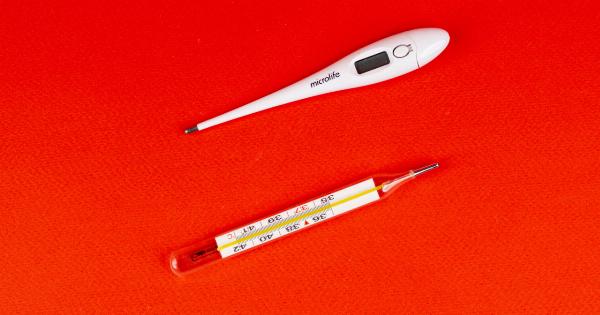In today’s modern world, air conditioning has become a common feature in homes, offices, and public spaces.
While air conditioning provides relief from the scorching heat of summer and creates a comfortable indoor environment, it is important to be aware of the potential health hazards associated with its prolonged use. In this article, we will explore the various health risks that can arise from excessive air conditioning and the steps we can take to minimize these hazards.
The Effect of Air Conditioning on Skin
One of the primary health hazards of air conditioning is its impact on the skin. When exposed to air conditioning for extended periods, the skin tends to lose moisture, leading to dryness and dehydration.
This can cause an array of skin problems such as itching, irritation, and even eczema. Additionally, the continuous exposure to cold air can cause the skin to lose its natural oils, making it prone to cracks and infections.
Respiratory Issues
Another significant concern associated with air conditioning is its effect on the respiratory system.
Air conditioning units tend to circulate and recirculate the same air, which can result in the accumulation of dust, allergens, and other pollutants within the confined space. This can trigger respiratory issues such as allergies, asthma, and bronchitis. Moreover, sudden temperature changes between the air-conditioned indoor environment and the hot outdoor air can also cause respiratory distress for some individuals.
Eye Problems
Prolonged exposure to air conditioning can contribute to several eye problems. The dry air generated by air conditioning systems reduces the natural moisture in the eyes, leading to dry eye syndrome. This can cause discomfort, itching, and blurry vision.
Additionally, the constant exposure to cold air can cause the blood vessels in the eyes to constrict, leading to redness, irritation, and in some cases, even conjunctivitis.
Impacts on the Immune System
Air conditioning can have a negative impact on the immune system, making individuals more susceptible to various illnesses.
As air conditioning units recirculate the same air, they often become breeding grounds for bacteria, viruses, and other pathogens. This can lead to the spread of illnesses such as the common cold, flu, and respiratory tract infections.
Furthermore, the dry air produced by air conditioning can dry out the nasal passages and reduce mucus production, compromising the body’s natural defense mechanism against respiratory infections.
Muscle Stiffness and Joint Pain
Spending long hours in an air-conditioned environment can cause muscle stiffness and joint pain. The cold air can lead to the constriction of blood vessels, reducing blood flow to the muscles and joints.
This can result in stiffness, aches, and discomfort. Furthermore, sudden temperature changes when individuals move from an air-conditioned room to the outside heat can lead to muscle cramps and strains.
Mental and Cognitive Effects
Air conditioning can also have various mental and cognitive effects on individuals. Spending excessive time in artificially controlled environments can lead to a disconnection from the natural world.
This lack of exposure to natural elements can affect mental health, leading to feelings of depression, anxiety, and decreased overall well-being. Moreover, studies have shown that prolonged exposure to air conditioning can negatively impact cognitive function, including memory, attention, and problem-solving abilities.
Increased Energy Consumption & Environmental Impact
While air conditioning provides comfort, it comes with a significant environmental impact. Air conditioners consume a substantial amount of energy, which often results in increased greenhouse gas emissions.
This contributes to global warming and further exacerbates climate change. Additionally, the refrigerants used in air conditioning units release chemicals that deplete the ozone layer, leading to adverse environmental consequences.
Preventing Health Hazards
While air conditioning has its risks, there are steps that individuals can take to minimize the associated health hazards:.
1. Maintaining Proper Temperature and Humidity
Set the air conditioner temperature around 24-26 degrees Celsius (75-78 degrees Fahrenheit) and aim for a humidity level of around 40-60%. This helps maintain a comfortable and healthy indoor environment without overly stressing the body.
2. Regular Cleaning and Maintenance
Regularly clean and maintain air conditioning units to prevent the accumulation of dust, allergens, and bacteria. Clean or replace filters as recommended by the manufacturer and ensure that the unit is free from any blockages.
3. Adequate Ventilation
Ensure adequate ventilation in the room by opening windows or using fans whenever possible. This helps in circulating fresh air and reducing the buildup of pollutants within the indoor environment.
4. Take Breaks from Air Conditioning
It is important to take regular breaks from air conditioning to allow the body to acclimatize to natural temperatures. Spend time outdoors, especially during milder weather, to expose yourself to fresh air and natural elements.
5. Use Air Conditioners Responsibly
Avoid setting air conditioners at extremely low temperatures and use them judiciously. Remember that a slight increase in temperature can significantly reduce energy consumption and minimize environmental impact.
Conclusion
Air conditioning has undoubtedly revolutionized our modern lifestyle, providing relief from the heat and creating comfortable indoor environments.
However, it is crucial to be aware of the potential health hazards associated with prolonged and excessive use of air conditioning. By understanding these risks and adopting preventive measures, we can strike a balance between comfort and well-being.































